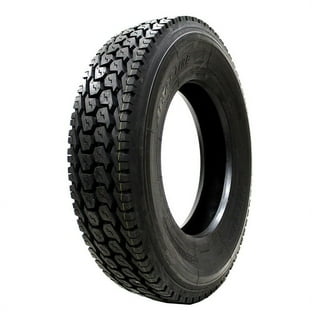Tire Service: The Influence of Climate Condition
When it comes to making certain optimum performance and safety when driving, recognizing the effect of weather condition conditions on tire solution is vital. From scorching warm to icy roads, each climate component can substantially influence tire capability and general driving experience. By delving right into the impacts of varying weather on tires, drivers can get important insights that might enhance their lorry's performance and longevity. In this conversation, we will check out the intricate connection in between climate condition and tire solution, dropping light on the value of weather-specific tire maintenance techniques and factors to consider.
Warm and Tire Efficiency
When exposed to heats, tires experience adjustments in performance that can substantially influence vehicle security and handling. The warmth generated from prolonged driving or heat problems causes the tire rubber to soften, resulting in reduced tread life and boosted wear. As the rubber comes to be softer, the tire's grip on the road reduces, influencing stopping ranges and overall traction. In extreme cases, extreme warm can also create tire blowouts, posing a severe safety danger to the automobile and its owners.
Moreover, high temperature levels can accelerate the process of tire aging, creating the rubber to weaken quicker. This can result in cracks, protrudes, and various other kinds of damages that jeopardize the structural integrity of the tire. To minimize the results of warm on tire performance, chauffeurs should frequently inspect their tire pressure, revolve tires to make sure even wear, and inspect for any kind of indications of damage. In addition, utilizing tires specifically designed to hold up against heats can assist maintain ideal performance and safety and security on the roadway.
Cold Weather Results
Cold weather condition problems can have a significant effect on tire efficiency and safety and security. In cool weather, tires may also lose air pressure a lot more swiftly, which can influence handling and fuel effectiveness.
To alleviate the impacts of winter on tires, it is essential to on a regular basis examine tire stress and inflate them to the manufacturer's recommended levels. Using winter season or all-season tires developed for winter problems can likewise enhance grip and hold on icy or snowy roads - morris tire and alignment. Appropriate tire maintenance, including regular inspections for wear and damage, comes to be a lot more essential throughout cooler months to make sure ideal performance and security
Rainy Conditions Impact
During wet problems, tire performance and security can be significantly affected by the damp road surfaces and minimized visibility. The walk pattern of tires plays an essential function in keeping traction on wet roadways. Tires with worn-out footsteps are much more susceptible to hydroplaning, where a layer of water constructs up in between the tire and the road surface area, resulting in loss of traction. To battle this, vehicle drivers ought to consistently inspect their tires for sufficient walk deepness and take into consideration spending in tires specifically developed for wet problems.

Snow and Tire Security
Snow-covered roadways position unique challenges for drivers, stressing the relevance of appropriate tire choice and maintenance. When driving in snowy problems, having the ideal tires can make a considerable difference in safety and performance. Winter tires are designed with unique rubber compounds and step patterns to supply better grip on snow and ice contrasted to all-season tires. The deeper footsteps and sipes of winter season tires help hold the road much better, minimizing the danger of slipping and gliding.
In addition to making use of winter try here season tires, it is crucial to guarantee they are properly pumped up. Winter can trigger tire stress to drop, impacting grip and handling (tire shop morris). On a regular basis checking and preserving the proper tire pressure is necessary for optimal efficiency in snowy problems

Weather-Related Tire Maintenance
Weather-related tire maintenance encompasses a variety of methods intended at ensuring optimal tire function and durability in different weather condition circumstances. One key aspect of weather-related tire maintenance is tire pressure policy. Checking tire step regularly and changing tires when step wear gets to a particular deepness is essential for keeping grip and security in damaging climate.
Verdict
Finally, climate problems have a substantial influence on tire efficiency and security. From warmth impacting tire stress and use to chilly weather reducing traction, it is vital to consider the climate when keeping and making use of tires. Wet conditions can decrease grasp and bring about hydroplaning, while snow can raise the danger of mishaps if tires are not correctly equipped. Weather-related tire upkeep is critical in making sure ideal efficiency and safety on the roads.
In this discussion, we will certainly explore the detailed connection in between weather condition problems and tire service, losing light on the value of weather-specific tire upkeep methods and factors to consider.
